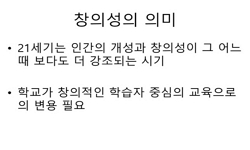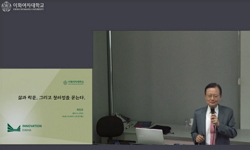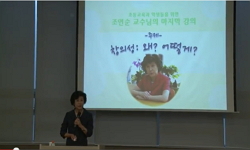많은 조직들은 복잡하고 변화를 예측할 수 없는 환경 속에서 조직의 지속적인 생존과 발전을 위해 다각도로 노력하고 있다. 그 중에서도 조직의 효과적 기능에 기초가 되는 구성원의 과업성...
http://chineseinput.net/에서 pinyin(병음)방식으로 중국어를 변환할 수 있습니다.
변환된 중국어를 복사하여 사용하시면 됩니다.
- 中文 을 입력하시려면 zhongwen을 입력하시고 space를누르시면됩니다.
- 北京 을 입력하시려면 beijing을 입력하시고 space를 누르시면 됩니다.

군 조직에서 리더의 권위주의와 능력이 구성원의 과업성과와 창의성에 미치는 영향 = The Impact of Authoritarian Leadership on Task Performance and Creativity in Military Setting: The Moderating Effect of Leader Ability
한글로보기https://www.riss.kr/link?id=A107881865
- 저자
- 발행기관
- 학술지명
- 권호사항
-
발행연도
2021
-
작성언어
-
-
주제어
권위주의적 리더십 ; 과업성과 ; 창의성 ; 리더능력 ; Authoritarian Leadership ; Leader Ability ; Task Performance ; Creativity
-
등재정보
KCI등재
-
자료형태
학술저널
-
수록면
61-81(21쪽)
-
KCI 피인용횟수
0
- 제공처
- 소장기관
-
0
상세조회 -
0
다운로드
부가정보
국문 초록 (Abstract)
많은 조직들은 복잡하고 변화를 예측할 수 없는 환경 속에서 조직의 지속적인 생존과 발전을 위해 다각도로 노력하고 있다. 그 중에서도 조직의 효과적 기능에 기초가 되는 구성원의 과업성과 및 창의성을 창출해 낼 수 있도록 하는 리더의 능력과 자질이 더욱 요구되는 시점이다. 하지만 실제 조직에 보편적인 권위주의적 리더십이 과업성과와 창의성에 미치는 영향을 살핀 연구는 많지 않으며, 특히 과업성과 및 창의성에 미치는 권위주의적 리더십의 효과의 역동성에도 불구하고 이를 실증한 연구는 더욱 제한적이다. 따라서 권위주의적 리더십과 과업성과 및 창의성 간의 관계의 복잡성에 대한 실증적인 증거를 추가로 확보하는 것은 의의가 있는 일일 것이다. 그에 따라 본 연구는 권위주의적 리더십이 과업성과 및 창의성에 미치는 영향에 대해 리더능력을 경계조건으로 보고 이를 실증하였다. 가설검증을 위해 군 조직에 종사하는 간부 163쌍을 대상으로 설문조사를 실시하였으며, 위계적 다중 회귀분석을 이용하여 실증분석을 하였다. 분석결과 리더능력이 높을 때 권위주의적 리더십-과업성과간의 관계는 유의한 정적관계가 나타났지만, 권위주의적 리더십-창의성 간의 관계에서는 유의하지 않았다. 반면, 리더능력이 낮을 경우 권위주의적 리더십과 과업성과, 권위주의적 리더십과 창의성 간의 부적관계는 유의하였다. 본 연구는 능력있는 리더의 위계적인 관리가 구성원의 과업성과는 높일 수 있지만 창의성에서는 그렇지 못함을 밝혔다. 반면 능력없는 리더의 위계적인 관리는 구성원의 과업성과와 창의성을 감소시킨다는 것을 밝혔다. 이를 통해 권위주의적 리더십의 영향력이 보다 역동적이고 다양하다는 것을 알아냈으며, 어떤 경계조건이 권위주의적 리더십의 효과를 결정하는데 중요한지에 대한 증거를 제시하였다. 연구의 말미에는 본 연구의 한계 및 향후 연구방향에 대해 논의하였다.
다국어 초록 (Multilingual Abstract)
Many organizations are trying to survive and develop in a complex and unpredictable environment. Among them, it is time to require more leader ability and qualities to create the task performance and creativity of the members based on the effective fu...
Many organizations are trying to survive and develop in a complex and unpredictable environment. Among them, it is time to require more leader ability and qualities to create the task performance and creativity of the members based on the effective function of the organization. However, there are not many studies that examine the effects of universal authoritarian leadership on task performance and creativity in actual organizations. In particular, despite the dynamics of authoritarian leadership effect on task performance and creativity, the empirical study is more limited. Therefore, it is meaningful to secure additional empirical evidence of the complexity of the relationship between authoritarian leadership and task performance and creativity. Accordingly, this study demonstrated the effect of authoritarian leadership on task performance and creativity by considering leader ability as a boundary condition. To confirm this, We collected data from military members (supervisor-subordinate dyad) in the Army, Republic of Korea. A total of 163 matched dyadic data was used for analysis and empirical analysis was conducted using hierarchical multiple regression analysis. The results of the analysis showed that when leader ability was high, the relationship between authoritarian leadership and task performance showed a significant positive relationship, but there was no significant relationship between authoritarian leadership and creativity. On the other hand, when leadership ability is low, authoritarian leadership and task performance, authoritarian leadership and creativity are negatively related. This study revealed that hierarchical management of competent leaders can increase the performance of the members' tasks, but not in creativity. On the other hand, hierarchical management of incompetent leaders reduces the performance and creativity of members. This study found that authoritarian leadership influences are more dynamic and diverse, and presented evidence on which boundary conditions are important in determining the effects of authoritarian leadership. At the end of the study, the limitations of this study and future research directions were discussed.
참고문헌 (Reference)
1 김천석, "정서지능, 인지능력, 성격의 구성개념간 변별성과 정서지능의 과업수행, 맥락수행, 적응수행에 대한 증분타당도 검증" 한국산업및조직심리학회 18 (18): 271-298, 2005
2 박정원, "상호작용 공정성이 창의성과 과업성과에 미치는 영향: 심리적 안전의 매개효과와 향상초점의 조절효과" 리더십학회 8 (8): 5-32, 2017
3 김동준, "리더 능력과 과업성과 : 리더 호감의 매개효과와 리더 유머의 조절효과" 한국인적자원개발학회 22 (22): 133-159, 2019
4 김동현, "권위주의적 리더십이 조직침묵에 미치는 영향: 상대적 박탈감의 매개효과와 성장욕구 강도의 조절효과" 리더십학회 11 (11): 67-93, 2020
5 최병순, "軍 리더십 이론과 사례를 중심으로" 북코리아 2010
6 Zhou, J, "When job dissatisfaction leads to creativity: Encouraging the expression of voice" 44 : 2001
7 Huang, X, "When authoritarian leaders outperform transformational leaders: Firm performance in a harsh economic environment" 1 : 2015
8 Gu, Q, "Tough love and creativity: How authoritarian leadership tempered by benevolence or morality influences employee creativity" 31 : 2020
9 Wang, H, "The positive effect of authoritarian leadership on employee performance: The moderating role of power distance" 9 : 2018
10 Hitt, M. A, "The new frontier: Transformation of management for the new millennium" 68 : 2000
1 김천석, "정서지능, 인지능력, 성격의 구성개념간 변별성과 정서지능의 과업수행, 맥락수행, 적응수행에 대한 증분타당도 검증" 한국산업및조직심리학회 18 (18): 271-298, 2005
2 박정원, "상호작용 공정성이 창의성과 과업성과에 미치는 영향: 심리적 안전의 매개효과와 향상초점의 조절효과" 리더십학회 8 (8): 5-32, 2017
3 김동준, "리더 능력과 과업성과 : 리더 호감의 매개효과와 리더 유머의 조절효과" 한국인적자원개발학회 22 (22): 133-159, 2019
4 김동현, "권위주의적 리더십이 조직침묵에 미치는 영향: 상대적 박탈감의 매개효과와 성장욕구 강도의 조절효과" 리더십학회 11 (11): 67-93, 2020
5 최병순, "軍 리더십 이론과 사례를 중심으로" 북코리아 2010
6 Zhou, J, "When job dissatisfaction leads to creativity: Encouraging the expression of voice" 44 : 2001
7 Huang, X, "When authoritarian leaders outperform transformational leaders: Firm performance in a harsh economic environment" 1 : 2015
8 Gu, Q, "Tough love and creativity: How authoritarian leadership tempered by benevolence or morality influences employee creativity" 31 : 2020
9 Wang, H, "The positive effect of authoritarian leadership on employee performance: The moderating role of power distance" 9 : 2018
10 Hitt, M. A, "The new frontier: Transformation of management for the new millennium" 68 : 2000
11 Wu, M, "The influencing mechanisms of paternalistic leadership in Mainland China" 18 : 2012
12 Mayer, J. D, "The effect of the performance appraisal system on trust for management: A field quasi-experiment" 84 : 1999
13 Conger, J. A, "The dark side of leadership" 19 : 1990
14 Redding, S. G, "The Spirit of Chinese Capitalism" Walter de Gruyter 1990
15 Kerr, S, "Substitutes for leadership: Their meaning and measurement" 22 : 1978
16 Altemeyer, B, "Right-wing Authoritarianism(" University of Manitoba Press 1981
17 Mhatre, K. H, "Rational Persuasion and Attitude Change: The Impact of Perceived Leader Authenticity and Perceived Leader Ability on Target Outcomes" The University of Nebraska-Lincoln 2009
18 Nunnally, J. C, "Psychometric Theory" McGraw-Hill 1994
19 Kristof, A. L, "Person-organization fit: An integrative review of its conceptualization, measurement, and implications" 49 : 1996
20 Pellegrini, E. K, "Paternalistic leadership: A review and agenda for future research" 34 : 2008
21 Cheng, B. S, "Paternalistic leadership and subordinate responses: Establishing a leadership model in Chinese organizations" 7 : 2004
22 Aycan, Z, "Paternalism: In Indigenous and Cultural Psychology" Springer 2006
23 Ogbeibu, S, "Organisational cultures and the evoked effects of leader ability on employee creativity" 35 : 2020
24 Aiken, L. S, "Multiple Regression: Testing and Interpreting Interactions" Sage 1991
25 Howell, J. P, "Moderator variables in leadership research" 11 : 1986
26 Farh, J. L, "Management and Organizations in the Chinese context" Macmillan Press 2000
27 Mumford, M. D, "Leading creative people: Orchestrating expertise and relationships" 13 : 2002
28 Yukl, G, "Leadership in Organizations" Pearson Education 2012
29 Zhang, A. Y, "Leadership behaviors and group creativity in Chinese organizations: The role of group processes" 22 : 2011
30 Williams, L. J, "Job satisfaction and organizational commitment as predictors of organizational citizenship and in-role behaviors" 17 : 1991
31 Eden, D, "Implicit leadership theory as a determinant of the factor structure underlying supervisory behavior scales" 60 : 1975
32 Connelly, M. S, "Exploring the relationship of leadership and knowledge to leader performance" 11 : 2000
33 Blau, P. M, "Exchange and Power in Social Life" Wiley 1964
34 Tian, Q, "Does paternalistic leadership promote innovative behavior? The interaction between authoritarianism and benevolence" 47 : 2017
35 Amabile, T. M, "Creativity in Context" Westview Press 1996
36 Duan, J, "Authoritarian leadership and employee silence in China" 24 : 2018
37 Guo, L, "Authoritarian leadership and employee creativity: The moderating role of psychological capital and the mediating role of fear and defensive silence" 92 : 92-, 2018
38 Mayer, R. C, "An integrative model of organizational trust" 20 : 1995
39 Chen, X. P, "Affective trust in Chinese leaders: Linking paternalistic leadership to employee performance" 40 : 2014
40 McAllister, D. J, "Affected-and cognition-based trust as foundations for interpersonal cooperation in organizations" 38 : 1995
41 Preacher, K. J, "Addressing moderated mediation hypotheses: Theory, methods, and prescriptions" 42 : 2007
42 Salancik, G. R, "A social information processing approach to job attitudes and task design" 23 : 1978
동일학술지(권/호) 다른 논문
-
- 국방대학교 안보문제연구소
- 류인석 ( Inseok Yoo )
- 2021
- KCI등재
-
- 국방대학교 안보문제연구소
- 정두산 ( Dusan Jung )
- 2021
- KCI등재
분석정보
인용정보 인용지수 설명보기
학술지 이력
| 연월일 | 이력구분 | 이력상세 | 등재구분 |
|---|---|---|---|
| 2027 | 평가예정 | 재인증평가 신청대상 (재인증) | |
| 2021-01-01 | 평가 | 등재학술지 유지 (재인증) |  |
| 2018-01-01 | 평가 | 등재학술지 유지 (등재유지) |  |
| 2015-01-01 | 평가 | 등재학술지 유지 (등재유지) |  |
| 2011-08-22 | 학회명변경 | 영문명 : Research Institute On National Security Affairs -> Research Institute for National Security Affairs |  |
| 2011-01-01 | 평가 | 등재학술지 유지 (등재유지) |  |
| 2008-01-01 | 평가 | 등재학술지 선정 (등재후보2차) |  |
| 2007-01-01 | 평가 | 등재후보 1차 PASS (등재후보1차) |  |
| 2005-01-01 | 평가 | 등재후보학술지 선정 (신규평가) |  |
학술지 인용정보
| 기준연도 | WOS-KCI 통합IF(2년) | KCIF(2년) | KCIF(3년) |
|---|---|---|---|
| 2016 | 0.63 | 0.63 | 0.73 |
| KCIF(4년) | KCIF(5년) | 중심성지수(3년) | 즉시성지수 |
| 0.69 | 0.61 | 0.972 | 0.29 |





 KCI
KCI KISS
KISS







